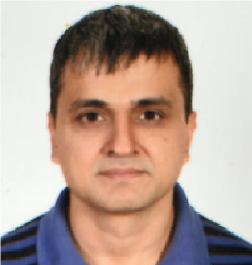Opinion
Human Capital relates to health and productivity
There are at least 1 million children under five years in Nepal who are stunted.
Manav Bhattarai
Human capital is an intangible quality which produces a tangible asset. Generally, we understand it as economic property for prosperity. For a household, it means social security. For a country, it means collective skills, knowledge, training, health and nutrition of its citizens who give economic returns. For an individual, it means to be skilled and competent to earn and live a productive life.
Stunting, a low height-for-age, results from chronic malnutrition. Nutrition starts early in life, even before one is born. A woman needs to be nutritionally healthy before conceiving a child. She needs to have a proper diet during pregnancy. When the child is born, the place of birth, nutrition and health determine the height. Stunting at a young age is a red flag indicator for losses in cognitive ability and future earning capacity.
The emotional, social and physical development of a child has a direct bearing on the adult they become. Their brain is enhanced by stimulation and by interaction with others outside the home. Combined with effective parenting, these children become ready to learn. This phenomenon, known as early childhood development, is critical to enhancing language and literacy and numeracy.
A country’s gross domestic product reflects how strong its human capital is. How does human capital form? How does a country start and where does it start? How do its citizens end up where they end up? And who invests in them to make sure that they land up in the high-performing range of human capital capable of taking on the global workforce? The World Bank’s Human Capital Project is working to find the answers to these questions. It is a global effort to accelerate more and better investments in people for greater equity and economic growth.
Nepal scored 0.49 out of the maximum possible score of 1 in the Human Capital Index released by the project in 2018. This means that a child born today in Nepal will be only 49 percent as productive when he or she grows up as he or she could be if he or she enjoyed complete education, full health, and exposure to skills. This highlights the urgent need to invest in Nepal’s human capital. A child born in a remote village in Humla does not enjoy opportunities equivalent to a child born in Kathmandu. So, it all depends on how the government and the private sector interact and coordinate to provide equal opportunities to all the people.
It is not so easy though, for a country like Nepal, first, to recuperate from the loss of its foregone human capital, and second, to keep pace with the Fourth Industrial Revolution—a revolution that is being driven by a constantly connected world. One needs to acquire the right skills for the kind of jobs that the future holds. As a parent, I am grooming my child to be prepared to face this world. As a citizen, I expect my country to work best and invest to provide opportunities to prepare its children who are the adults of tomorrow. After all, a country can only grow with its children.
Bhattarai is a senior health specialist at the World Bank.




 9.7°C Kathmandu
9.7°C Kathmandu










